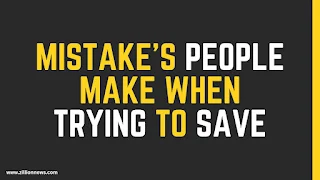it’s not only possible but empowering! The key lies in shifting your mindset from “I can’t save” to “How can I save smarter?” Start by tracking every expense for a month even that $3 coffee to uncover hidden spending leaks. You’ll quickly spot patterns unused subscriptions, impulse buys, or convenience fees draining your cash. Next, automate micro-savings like your bank’s “round-up” feature stash spare change effortlessly, turning $0.50 into $100+ yearly. Prioritize strategic cuts over deprivation swap brand-name groceries for store labels, negotiate bills (internet providers often offer discounts if you ask), or carpool to slash fuel costs. Embrace the “$5 rule” redirect small, daily indulgences (like snacks or apps) into a high-yield savings account. Even $5/day becomes $1,825 annually! For inspiration, meet Maria, a single mom who paid off $8,000 in debt by meal-prepping, selling unused items online, and using cashback apps. Her secret? “Progress, not perfection.” Tiny tweaks like unplugging devices to lower energy bills or borrowing books instead of buying add up faster than you think. Remember, frugality isn’t about sacrifice; it’s about redirecting resources toward what truly matters. With creativity and consistency, a tight budget becomes a launchpad for financial freedom. Ready to start? Your first $1 saved is already a win.
Also Read: better decision making
What’s the biggest mistake people make when trying to save on a small income?
Focusing solely on slashing expenses while ignoring opportunities to optimize what they already have. Many fall into the “deprivation trap,” cutting essentials like groceries or self-care to save pennies, only to burnout and splurge later. The real win? Getting creative with your current resources. Audit subscriptions, pantry staples, or skills you can monetize (like freelancing). Repurpose old items turn jars into storage, sell unused clothes online, or swap services with friends (babysitting for car repairs). Negotiate bills internet providers often lower rates if you ask and use cashback apps for everyday purchases. A $5 latte habit isn’t the enemy; mindless spending is. By rethinking scarcity (“I can’t afford this”) to strategy (“How can I make this work?”), small incomes become powerful tools. Remember Saving isn’t about sacrifice it’s about unlocking hidden value in every dollar.
Conclusion
Mastering personal finance on a limited budget is all about smart planning, disciplined habits, and making the most of what you have. By tracking expenses, prioritizing needs over wants, and leveraging savings strategies like meal prepping or secondhand shopping, you can stretch your money further. Small, consistent steps such as automating savings, cutting unnecessary subscriptions, and using cashback rewards can create long-term financial stability. financial success isn’t about how much you earn but how well you manage it. Stay committed, adapt as needed, and watch your financial confidence grow.










0 Comments